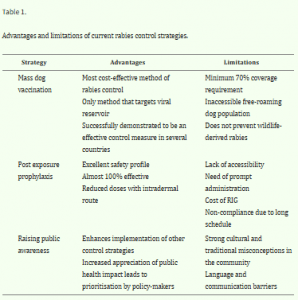Rabies remains a public health crisis, especially in high-burden countries like India. The recent publication in The Lancet Regional Health emphasizes the need for a shift from the current reliance on post-exposure prophylaxis (PEP) to the proactive use of pre-exposure prophylaxis (PrEP) in rabies-endemic areas.
Additional Reading: Introduction to Immunization Strategies
With over 59,000 global deaths annually, rabies disproportionately affects regions with limited healthcare infrastructure and high exposure to animal bites, particularly in children. India alone contributes to a third of the global rabies cases, where delays in PEP and access to timely care create an enormous health burden.
The article advocates for integrating PrEP into the national immunization programs in these high-risk areas. PrEP ensures that individuals develop rabies-neutralizing antibodies before any exposure, thus mitigating the reliance on immediate and sometimes inaccessible PEP. Furthermore, the cost-effectiveness of PrEP, especially with intradermal vaccination methods, promises long-term savings for healthcare systems and reduces the need for costly immunoglobulin treatments.

The advantages and limitations of various rabies control strategies are listed in Table 1. Currently, the primary strategy employed on a national scale to prevent human rabies is the administration of PEP to individuals with suspected rabid exposures.
The review argues that a shift towards preventive immunization could save thousands of lives, significantly reduce the socioeconomic impact of rabies, and help move closer to eliminating rabies in these regions. Universal PrEP, particularly for children in endemic areas, could be the next big step in rabies control.
Journal Article: Lodha, L., Ananda, A. M., & Mani, R. S. (2023). Rabies control in high-burden countries: role of universal pre-exposure immunization. The Lancet Regional Health – Southeast Asia, 19, 100258. https://pmc.ncbi.nlm.nih.gov/articles/PMC10709677/
Summary by Faith Oluwamakinde





© 2004 - 2025 Immunopaedia.org.za
Sitemap - Privacy Policy - Cookie Policy - PAIA - Terms & Conditions
This work is licensed under a Creative Commons Attribution-NonCommercial-ShareAlike 4.0 International License.

